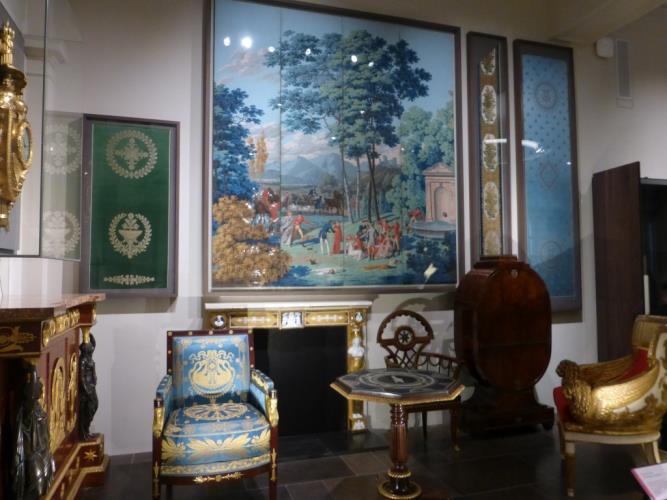Yi-Hsin Lin graduated from SOAS; now living in England as a writer. Lin has participated in the curation of Chinese painting in Victoria and Albert Museum and British Museum. He is also a lecturer in Chinese art at Christie’s Education and contributes to several Chinese-language art magazines.

On 23 June 2016, the British Government is set to introduce the EU referendum to decide on whether Britain will remain or leave the EU. Although the government is still rather inclined to remain in the EU, the recent issues that trouble Europe, such as the refugee crisis and terrorist incidents, have led to some feelings of uncertainty within the UK, causing some British people to doubt the necessity to cross the straits and get involved in the EU politics? Indeed, the relationship between the UK and the EU states have always been complicated, and is not easily reconciled, be it seen from the political, economic or social perspective. However, one can, from the activities and declarations by UK arts organisations, understand the inseparable ties between the two regions, at least in the short term.
V&A: launch of European hall
As a leading arts organisation in London, the European hall at V&A has stirred up a heated debate since its opening at the end of last year. Having taken several years to complete and costing considerable resources, the hall featured over 1,100 artistic, design and antique exhibits from 1600 to 1815, ranging from ceramics, glass, furniture, metals, drawings, sculptures and books. Not only does it offer a glimpse of the royal and aristocratic lives in Europe back then, it also sheds light on the lives of the common people. Instead of narrating European history according to geographical locations or historical periods, the entire hall follows a thematic narrative. For example, the first exhibition room suggests the inter-relationship between extravagance and power. Other themes include the urban and the commerce, precious gems and treasures, the rise of France, and the relationship between Europe and the world.
Not long after the opening of the new hall, the museum team convened an international roundtable forum by museum directors in the UK and Europe discussed and debated on the theme of “Crisis as Opportunity?”. Each director purported his or her own view of museum operation, while the audience were keen to ask questions as well as elaborate their own views. Nevertheless, the consensus was that, despite differences in political management across countries, they do share some commonalities in terms of backgrounds and cultural movements. Through the setting up of this brand new exhibition hall, it is hoped that the community can understand more about the historical pasts and social nourishment of the various European states, and the inter-connectedness between Britain and these states, via the artistic and cultural exhibits. To understand the present or to envisage the future, one must first retrieve the past. Perhaps the crises that the people are faced with nowadays can become the critical moments that transform the future.
An active call for action from the museum arts sector
In late February this year, Alistair Brown, member of the policy committee of the Museums Association in the UK, said that if Britain were to leave the EU, it will be a tremendous blow to the academic research, exhibition programmes and funding resources of art galleries and museums at all levels and scale. This will no doubt impact on the museum sector in the UK given that it is/ already suffering from the lack of resources. As far as practical operation is concerned, arts organisations in the UK have considerable funding from EU organisations. If this relationship with the EU is terminated, would the financial situation of the UK be self-sustainable? In terms of cultural thinking, how should arts organisations articulate the cultural exchanges between the past, present and the future, after Britain’s possible exit from the EU? These challenging questions that will arise after a supposed exit from the EU should be debated and addressed imminently.
Simon Brown, who works at the Nottingham City Museums and Galleries, pointed out that the UK community should articulate to the world their global vision and receptivity through voting for remaining in the EU, rather than to appear short-sighted and narrow-minded. Moreover, he also urged his peers in the sector to act, emphasising the influence of the entire museum arts sector to connect Britain with the EU. It is understood that the People’s History Museum in Manchester has plans to stage an exhibition on this theme during the referendum period, as a response to the processes and outcome of the referendum. What will be the relationship between Britain and the EU? The jury is still out on this one.